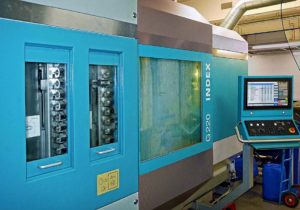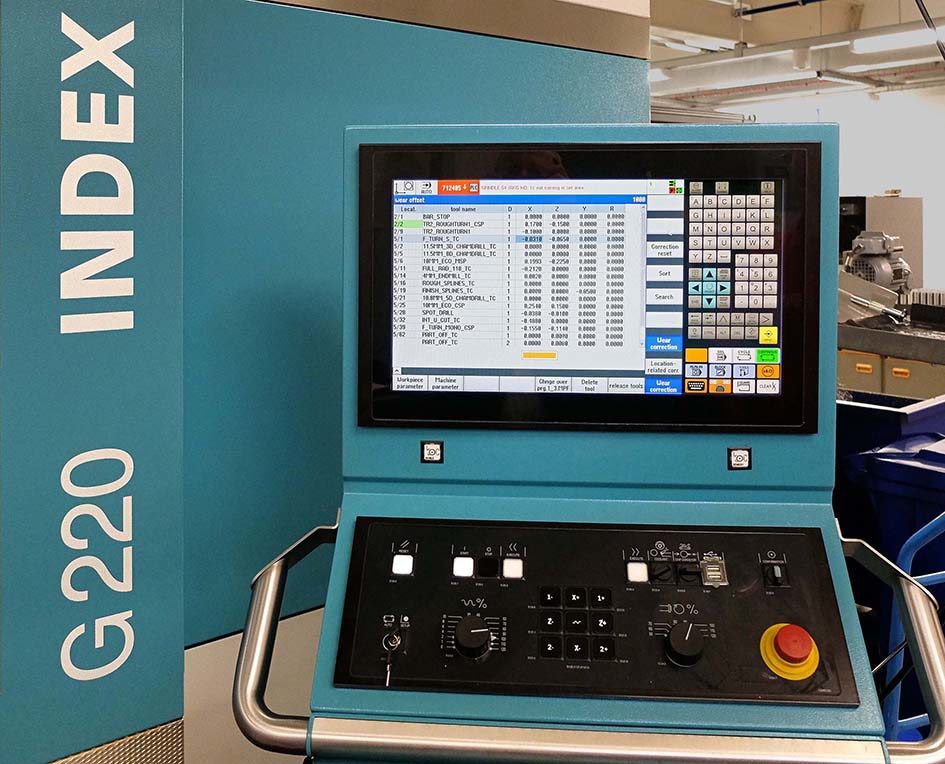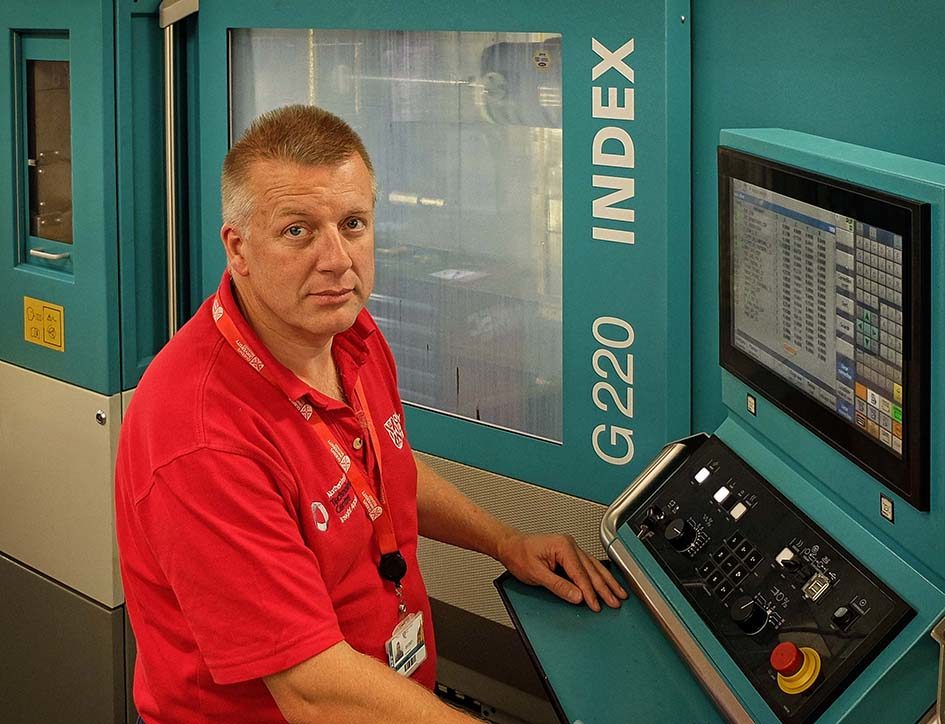A £7.5 million advanced manufacturing technology facility was launched in June 2018 at Queen’s University Belfast to provide manufacturing industry in Northern Ireland and beyond, from one-man-bands through SMEs to large multi-national OEMs, with a range of services to improve efficiency of production.

The G220 is equipped with a 140-tool magazine
They include consultancy, collaborative research and development (R&D), industrial training, intervention for problem solving and cycle time reduction, and taking manufacturing processes from product inception through to pre-production.
Acquisition of new equipment to populate the facility, which is based at the Northern Ireland Technology Centre (NITC – www.qub.ac.uk/sites/nitc) located within the university, took 21 months and saw the installation of seven new metalcutting machine tools and a host of inspection and scientific equipment.

The CNC system is an INDEX C200 sl, which is based on the Siemens S840D sl control.
The NITC is developing into a regional centre of excellence for machining titanium as well as aluminium structural components for aircraft, working closely with leading global aerospace companies. It alone has completed more than 50 knowledge transfer partnerships for Innovate UK, an area in which the university as a whole leads the way across Britain and Northern Ireland.
The only lathe ordered in the first round of investment was a twin-spindle Index G220 turn-mill centre supplied by Kingsbury (www.kingsburyuk.com), Gosport, sole agent in the UK and Ireland for the German manufacturer. The lathe arrived in January 2018 and was immediately put to use optimising a production process for an air bearing manufacturer in England whilst they are waiting for their own G220 machine to arrive.
The availability of a similar machine in Northern Ireland, together with NITC staff able to investigate various applications and develop efficient, Industry 4.0-compliant process routes, was an ideal solution. It had the added advantage that the centre is also able to machine batches of air bearing components to mitigate a recurring production bottleneck in the factory.
Head of the NITC, Colm Higgins said, “The Index turn-mill machine is currently being used to evaluate the possibility of raising the efficiency of rough-turning stainless steel bar. In collaboration with our customer, we are hoping to develop a technique that replaces single-point turning with a process that instead uses a milling cutter in the B-axis spindle.
“Spreading the cutting load across several inserts rather than just one, as the bar is turning, would considerably increase the feed per tooth and hence metal removal rate, leading to reduced cycle times.
“Admittedly, accuracy and surface finish would not be as good, but for a roughing operation it does not matter. We are reviewing other turn-milling processes as well for this manufacturer.”
The Index G220 at Queen’s University Belfast has a 65 mm bar capacity and is fitted with an LNS short bar feeder. The B-axis spindle is positioned above the spindle centreline and is supplied with cutters from a 140-tool magazine. There is also a lower turret with 18 driven stations. Both tool carriers additionally move in X, Y and Z and are able to operate at either spindle.
Similar development projects are harnessing the capabilities of the six other new machine tools installed at the NITC, all of which are machining centres. Four are parallel kinematic machines, an area of particular focus for Mr Higgins and his team of 12 engineers, a headcount that will increase by 50 per cent by the end of 2018. The other two machines are conventional 5-axis and 3-axis vertical-spindle models.





